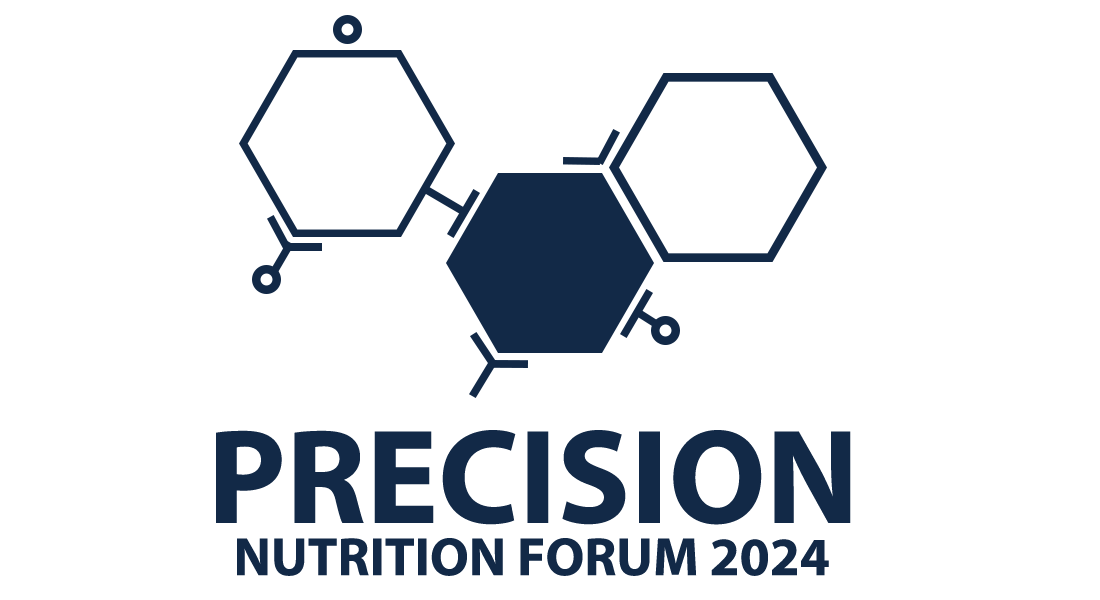
Speakers
 'Digital platforms for dietary assessment and interventions?'
'Digital platforms for dietary assessment and interventions?'
Professor Heitmann has spent more than 3 decades examining the early causes and later consequences of obesity with a specific focus on preventing and treating obesity (RCTs) among children and adults.
Recent research contributions include the 5-year EU-Horizon2020 project NoHoW, that tested in an European RCT, an IT based toolkit to help adult individuals wishing to keep a recent successful weight loss over long term; A randomized primary overweight prevention intervention.
The HealthyStart intervention examined drivers of excessive weight gain among healthy weight children; and the ongoing LightCOM project aims to find novel ways for sustained weight management.
 'Decoding the obese brain: a matter of cell identity?'
'Decoding the obese brain: a matter of cell identity?'
My research focuses on unravelling the intricate neurobiological mechanisms that control food intake and systemic energy metabolism under physiological conditions and in the context of obesity.
The primary aim of my work is to explore the functional plasticity of hypothalamic circuits and to gain a deeper understanding of how these circuits operate. Ultimately, my goal is to identify novel centrally acting therapeutic strategies for individuals struggling with metabolic disorders.
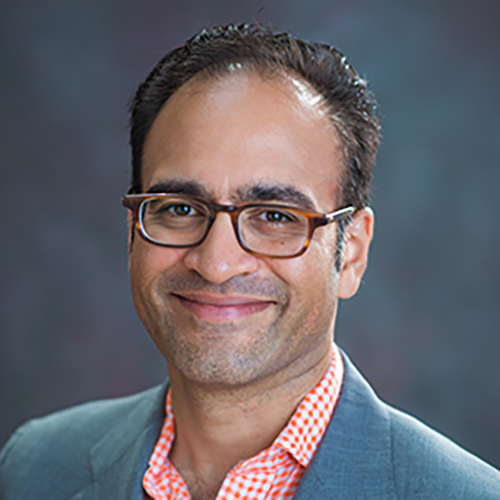 'High-throughput approaches to untangle the correlated exposome and genome in metabolic disease'
'High-throughput approaches to untangle the correlated exposome and genome in metabolic disease'
My research is dedicated to improving human health and managing diseases using the tools of biomedical informatics. I specialize in developing computational and informatics methods to analyze genomic and exposomic data, contributing to precision medicine in complex diseases like diabetes.
My work is integral to the human exposome project, where I've developed methods like the "Exposome-wide Association Study" (ExWAS). This approach is pivotal in understanding the interaction between genetics, exposome, and disease traits, such as those related to cardiometabolic disease and aging. My research also delves into health disparities and sociodemographic differences in exacerbating outcomes in aging populations.
In academia, I contribute as a course designer in Biomedical Informatics and Bioinformatics, covering topics like Medical Decision Making and Translational Bioinformatics. Currently, I lead two major research NIH-funded projects and am an associate professor of biomedical informatics at Harvard Medical School with training in biomedical informatics from Stanford University.
 'Sustainable healthy diets for (all) the people?'
'Sustainable healthy diets for (all) the people?'
Christina C. Dahm holds a PhD from the University of Cambridge, UK, with subsequent postdoctoral training at University of Cambridge, Harvard T.H. Chan School of Public Health, MA, USA, and Aarhus University, Denmark.
Her research interests include observational nutritional epidemiology, with a current focus on the implications for public health of integrating climate sustainability considerations into dietary patterns and food-based dietary guidelines.
 'Biomarker-Driven Precision Nutrition: Monitoring Health Effects and Targeting Interventions'
'Biomarker-Driven Precision Nutrition: Monitoring Health Effects and Targeting Interventions'
I specialize in preventing cardiometabolic diseases using precision nutrition strategies. My work focuses on how dietary changes influence the risk of type 2 diabetes and cardiovascular diseases.
With a foundation in nutrition, epidemiology, and bioinformatics, I investigate -omics profiles in large-scale human studies to understand their role in diet-disease dynamics. My goal is to identify biomarkers that enable targeted dietary and lifestyle interventions for at-risk populations.
 'Energy sensing and food choice'
'Energy sensing and food choice'
Dana M Small is the Canadian Excellence in Research Chair in Brain and Metabolism at McGill University. She holds primary appointments in Neurology and Neurosurgery and in Internal Medicine. Professor Small received her PhD in Clinical Psychology from McGill University in 2001 and subsequently established her lab at Yale University, where she was on faculty for 20 years. Her research combines neuroimaging and metabolic measurements to understand how the brain and body integrate signals from the external environment and the internal milieu to optimize behavior and metabolism. Her laboratory also studies how dysregulation of these body-brain axes contribute to the development of obesity, diabetes, cognitive impairment and psychiatric disorders.
 'Healthy and sustainable diets in the era of precision nutrition'
'Healthy and sustainable diets in the era of precision nutrition'
Dr. Tobias is a nutrition and obesity epidemiologist at the Brigham and Women’s Hospital and Harvard Medical School in Boston, MA. She also serves as Academic Editor for the top-ranked American Journal of Clinical Nutrition.
Dr. Tobias received her doctorate from the Harvard T.H. Chan School of Public Health in nutritional epidemiology and her research focuses on identifying lifestyle risk factors of obesity and related chronic diseases, including type 2 diabetes, heart disease, and cancer. Her research identified dietary patterns and plasma metabolomic profiles of high risk for progression from gestational diabetes in pregnancy to type 2 diabetes later in life. She contributed to the recently published International Consensus Report on Precision Diabetes Medicine (Nature Medicine, 2023).
Dr. Tobias is passionate about research methodology to improve the validity and rigor of nutrition science research, particularly as related to optimizing evidence synthesis and causal inference. Dr. Tobias serves as the PI for NIH-funded research, including a randomized beverage intervention trial and a consortium effort to develop obesity phenotypes of cancer incidence.
 'Metabolic phenotypes in obesity: implications for precision nutrition'
'Metabolic phenotypes in obesity: implications for precision nutrition'
Prof. Ellen Blaak is Professor of Human Biology at the Department of Human Biology since 2007 and is Chair of the Department of Human Biology of Maastricht University Medical Centre+.
Her research focuses on the interorgan cross-talk (gut-adipose tissue-muscle metabolism) in the aetiology of obesity and type 2 diabetes mellitus as well as the impact of (precision) nutritional or lifestyle interventions in the prevention of these chronic metabolic diseases. She is member of the Nutrition committee of the Dutch Health Council and of several advisory board/grant evaluation committees.
She obtained funding from among others the Netherlands Organization for Scientific research/Dutch Diabetes Research Foundation, the European Union and public private partnership with food and pharmaceutical industry as a PI for 30 research projects and has supervised more than 30 PhD theses.
 'Personalized medicine based on deep human phenotyping'
'Personalized medicine based on deep human phenotyping'
Eran Segal is a Professor at the Department of Computer Science and Applied Mathematics at the Weizmann Institute of Science, heading a lab with a multi-disciplinary team of computational biologists and experimental scientists in the area of Computational and Systems biology. His group has extensive experience in AI, machine learning, computational biology, and analysis of heterogeneous high-throughput genomic data. His research focuses on Microbiome, Nutrition, Genetics, and their effect on health and disease. His aim is to develop personalized medicine based on data from large-scale and deeply phenotyped human cohorts.
Prof. Segal published over 200 publications that were cited over 60,000 times, and received several awards and honors for his work, including the Overton prize, awarded annually by the International Society for Bioinformatics (ICSB) to one scientist for outstanding accomplishments in computational biology, and the Michael Bruno award. He was also elected as an EMBO member and as a member of the young Israeli academy of science. During the COVID-19 pandemic, Prof. Segal developed models for analyzing the dynamics of the pandemic and served as a senior advisor to the government of Israel.
Before joining the Weizmann Institute, Prof. Segal held an independent research position at Rockefeller University, New York.
Education: Prof. Segal was awarded a B.Sc. in Computer Science summa cum laude in 1998, from Tel-Aviv University, and a Ph.D. in Computer Science and Genetics in 2004, from Stanford University.
 'Integrating precision nutrition with traditional diets: Exploring the intersection of science and culture'
'Integrating precision nutrition with traditional diets: Exploring the intersection of science and culture'
Dr. Frank Hu is Chair of Department of Nutrition, Fredrick J. Stare Professor of Nutrition and Epidemiology at Harvard T.H. Chan School of Public Health and Professor of Medicine, Harvard Medical School and Brigham and Women’s Hospital. Dr. Hu received his MD from Tongji Medical College in China and MPH and PhD in Epidemiology from University of Illinois at Chicago. He completed a postdoctoral fellowship in Nutritional Epidemiology at Harvard T.H. Chan School of Public Health.
Dr. Hu’s major research interests include epidemiology and prevention of cardiometabolic diseases through diet and lifestyle; gene-environment interactions; nutritional metabolomics; and nutrition transitions in low- and middle-income countries.
Currently, he is Director of Boston Nutrition and Obesity Research Center Epidemiology and Genetics Core and Director of Dietary Biomarker Development Center at Harvard University. He has published a textbook on Obesity Epidemiology (Oxford University Press) and >1400 peer-reviewed papers with an H-index of 290. He served on the Institute of Medicine (IOM) Committee on Preventing the Global Epidemic of Cardiovascular Disease, the Obesity Guideline Expert Panel, American Heart Association Nutrition Committee, and the 2015 Dietary Guidelines Advisory Committee, USDA/HHS. He has served on the editorial boards of Lancet Diabetes & Endocrinology, Diabetes Care, and Clinical Chemistry. Dr. Hu was elected to the National Academy of Medicine in 2015.
 'Food environment drivers of energy intake in humans'
'Food environment drivers of energy intake in humans'
Dr. Kevin Hall received his Ph.D. in Physics from McGill University and is now a tenured Senior Investigator at the National Institute of Diabetes & Digestive & Kidney Diseases (NIDDK), one of the National Institutes of Health (NIH) in Bethesda, MD.
His main research interests involve investigating how the food environment affects what we eat and how what we eat affects our physiology and the development of obesity. Dr. Hall has twice received both the NIH Director’s Award and the NIDDK Director’s Award, and is the recipient of the E.V. McCollum Award from the American Society for Nutrition, the Lilly Scientific Achievement Award from The Obesity Society, and the Guyton Award for Excellence in Integrative Physiology from the American Physiological Society.
 'U.S. Precision for Nutrition Health Research Consortium: Rational, Design and Progress'
'U.S. Precision for Nutrition Health Research Consortium: Rational, Design and Progress'
Leanne M. Redman, is a Professor in the Division of Clinical Sciences and Associate Executive Director for Scientific Education at Pennington Biomedical Research Center in Baton Rouge, Louisiana. Her expertise is in human physiology as it relates to the quantification of energy balance, in both controlled and free-living conditions in humans.
Her research is conducted with the goal to understand the mechanisms of body weight regulation to promote healthy aging across the lifespan, as well as to develop and test inventions for effective prevention and treatment of obesity and its comorbidities.
Dr. Redman directs the Reproductive Endocrinology and Women’s Health Laboratory. The lab conducts extramurally funded studies in pregnant women (and their infants) and women with infertility with the goal to understand the impact of obesity and metabolic health on women and obesity risk in offspring.
Dr. Redman is also involved in the scientific development, training, and mentoring of postdoctoral fellows and early career investigators. She has published more than 200 research articles, reviews, and book chapters around energy metabolism, insulin sensitivity, obesity, calorie restriction, exercise, and maternal/infant physiology.
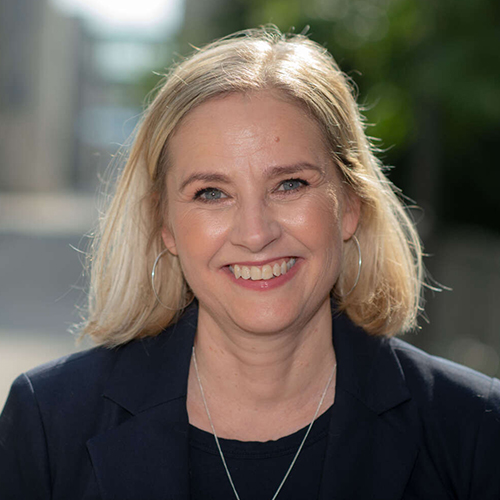 'Digital and scalable interventions for obesity prevention and self-management of non-communicable diseases'
'Digital and scalable interventions for obesity prevention and self-management of non-communicable diseases'
Marie Löf is Professor in Nutrition at Karolinska Institutet, where she leads a research group, IMPACT, with 25 members. Her research focuses primarily on early-life obesity prevention and digital health. During the last years, she has developed and evaluated several digital interventions to promote healthy eating and for obesity prevention that are now under implementation at scale in routine health care (e.g., MINISTOP for child health care, HealthyMoms for maternity health care).
Current work includes e.g., a digital platform to improve self-management and treatment of gestational diabetes. She has a particular interest in making digital interventions scalable and accessible for high-priority populations.
Her research group also conducts research in Big Data and technology-driven Citizen science. Professor Löf is also the coordinator of the Centre for Nutrition, a research centre including eight research groups covering experimental to public health research.
 'Monitoring health using deep data and remote monitoring'
'Monitoring health using deep data and remote monitoring'
As the father of Precision Medicine, Dr Michael Snyder has invented many technologies enabling the 21st century of healthcare including systems biology, RNA sequencing, and protein chip. Dr Snyder has pioneered the Big Data approach to healthcare through his work using omics to detect early stage disease, including wearables to detect infectious diseases like COVID-19, and at-home microsampling to measure hundreds of molecules from a single drop of blood.
He is the first researcher to gather petabytes of data on individuals, which is 1 million - 1 trillion times more data than the average clinician collects. He as published over 800 papers and is one of the most cited scientists. In terms of commercial success, Mike has co-founded 17 companies (including 2 unicorns) with combined enterprise value of over $6 billion.
 'Large-scale metagenomics for precision nutrition: the ZOE PREDICT studies'
'Large-scale metagenomics for precision nutrition: the ZOE PREDICT studies'
Nicola Segata, Ph.D., is Professor and Principal Investigator in the CIBIO Department at the University of Trento (Italy) and Principal Investigator at the European Institute of Oncology in Milan (Italy). His lab comprises more than 25 researchers and employs experimental metagenomic tools and novel computational approaches to study the diversity of the microbiome across conditions and populations and its role in human diseases.
The projects in the lab bring together computer scientists, microbiologists, statisticians, and clinicians and are focused on profiling microbiomes with strain-level resolution and on the meta-analysis of very large sets of metagenomes with novel computational tools. The lab of Professor Segata is supported by the European Research Council and by several other European agencies.
 'Gut microbiome at the intersection of dietary changes and metabolic responses in prediabetes'
'Gut microbiome at the intersection of dietary changes and metabolic responses in prediabetes'
Orly Ben-Yacov, RD PhD.
Registered Dietitian and Molecular Biology Researcher
A registered dietitian and molecular biologist, with a Ph.D. degree from the Weizmann Institute of Science in Israel, under the supervision of Prof. Eran Segal. Specializing in the intersection of molecular biology and nutrition, with a PhD research focused on the gut microbiome's role in precision nutrition for type-2 diabetes. Lead the conduction of two randomized clinical trials in adults with prediabetes and newly-diagnosed T2DM to evaluate the clinical efficacy of a personalized algorithm-based diet approach that integrates clinical and microbiome features to target postprandial glucose responses (PPGR). Currently, working as a microbiome researcher in a clinical-stage biopharmaceutical company developing innovative microbiome-based therapeutics.
 'Food biomarker research in the era of precision nutrition'
'Food biomarker research in the era of precision nutrition'
Dr. Qi Sun is Associate Professor in the Departments of Nutrition and Epidemiology, Harvard T.H. Chan School of Public Health. He is also Associate Professor of Medicine at Channing Division of Network Medicine, Brigham and Women’s Hospital and Harvard Medical School. Dr. Sun’s primary research interests are to identify and examine biomedical risk factors, particularly dietary biomarkers, in relation to type 2 diabetes, obesity, and cardiovascular disease through epidemiological investigations.
His research is primarily based on several large-scale cohort studies including the Nurses’ Health Studies and the Health Professionals Follow-up Study. Dr. Sun is also interested in understanding the role of environmental pollutants, such as perfluoroalkyl substances and legacy persistent organic pollutants, in the etiology of weight change and type 2 diabetes. His research has led to more than 200 peer-reviewed publications. Dr. Sun is currently leading a few NIH-funded projects that focus on food biomarker discovery and validation, as well as relationships between obesogens and weight change, in human populations.
 'Self-sampling and OMICs - key enablers in precision nutrition'
'Self-sampling and OMICs - key enablers in precision nutrition'
Dr. Landberg studies the preventive role of plant-based foods using observational- and intervention studies integarating OMICs techniques. Metabolomics is a key technique in Dr. Landbergs’ research program and it is developed and applied for discovery and validation of exposure and prediction biomarkers, and for molecular phenotyping as the basis for tailored dietary strategies towards precision nutrition.
Dr. Landberg leads the SCAPIS2-HOME personalized nutrition study where 4500 individuals are invited for extensive challenge tests and home-sampling to be linked with prospective outcomes.
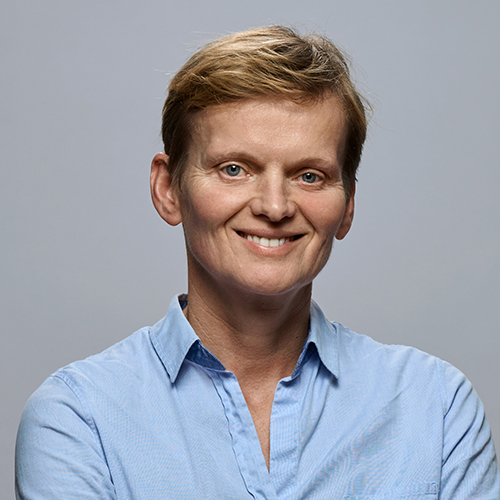 'Genetic subtypes of obesity'
'Genetic subtypes of obesity'
Ruth Loos is a Vice Executive Director and Group Leader of the Novo Nordisk Foundation Center for Basic Metabolic Research (CBMR) at the University of Copenhagen. She has close to twenty years of experience in researching the genetic causes of obesity. As a founding member of the GIANT consortium, she has spearheaded many of the large-scale gene-discovery efforts for BMI.
She has a particular interest in studying more refined adiposity phenotypes and composite phenotypes to reveal new biology that has not been uncovered by traditional obesity outcomes.
Ruth collaborates with bioinformaticians, molecular biologists, and physiologists to bridge the translation gap from variant to function.
As more and more GWAS loci are being discovered, she examines whether genotype information can be used to identify subtypes of obesity, predict who is at risk of becoming obese, or prescribe tailored prevention and treatment strategies in the context of precision diagnosis, prevention, and treatment.
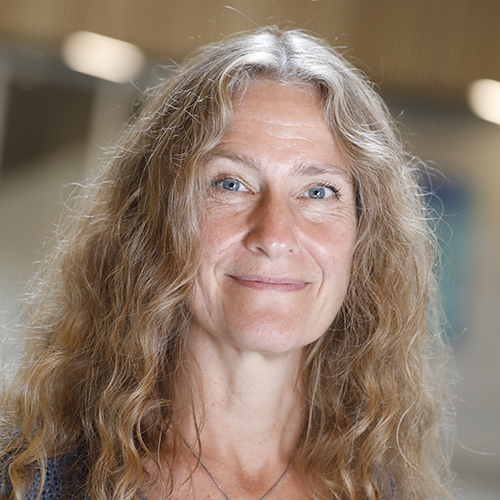 'Impact of diet on the metabolic output from the individual gut microbiome'
'Impact of diet on the metabolic output from the individual gut microbiome'
Professor Tine Rask Licht is Deputy Head of the National Food Institute, Technical University of Denmark, and leads the Research Group on Gut, Microbes and Health at this institute.
Her group focuses on effects of diet on the intestinal bacterial community, which they study in humans, animal models, and in vitro model systems. The group has contributed significantly to the understanding of the role of human milk and complementary diet on establishment of the microbiota in young infants, and of the impact of diet on metabolic activities of gut bacteria relevant for human health.
From 2012 to 2018, Prof. Licht was heading the research center ‘Gut, Grain and Greens’, and she is currently heading the major research effort ‘PRIMA’ - towards Personalized dietary Recommendations based on the Interaction between diet, Microbiome and Abiotic conditions in the gut, funded by a Challenge Grant from the Novo Nordisk Foundation.
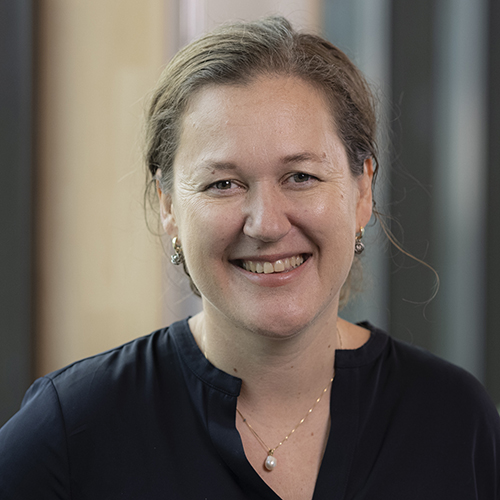 'GUTSY - The gut microbiome and its effect on metabolism and atherosclerotic disease'
'GUTSY - The gut microbiome and its effect on metabolism and atherosclerotic disease'
My graduate education is in Veterinary Medicine from SLU, Uppsala, Sweden (2005). After a PhD on the epidemiology of diabetes in dogs (2009) and a transition to human medical and genetic epidemiology in my post-doc at Karolinska Institutet in Stockholm, I became Professor of Molecular Epidemiology in 2019. The focus of my research is to identify risk factors and causes for diabetes and cardiovascular disease onset and progression.
In 2019, I was awarded an ERC Starting Grant to study the association of the microbiota composition with atherosclerosis in the large well-characterized SCAPIS cohort, where deep metagenomics sequencing is applied in >10,000 individuals aged 50-64. I am also the principal investigator of the SCAPIS genotyping effort of 30,000 individuals. Currently, my research team includes 11 scientists, mainly with competence in biostatistics, medicine and bioinformatics. During the pandemic I led two large COVID-19 epidemiology projects.
